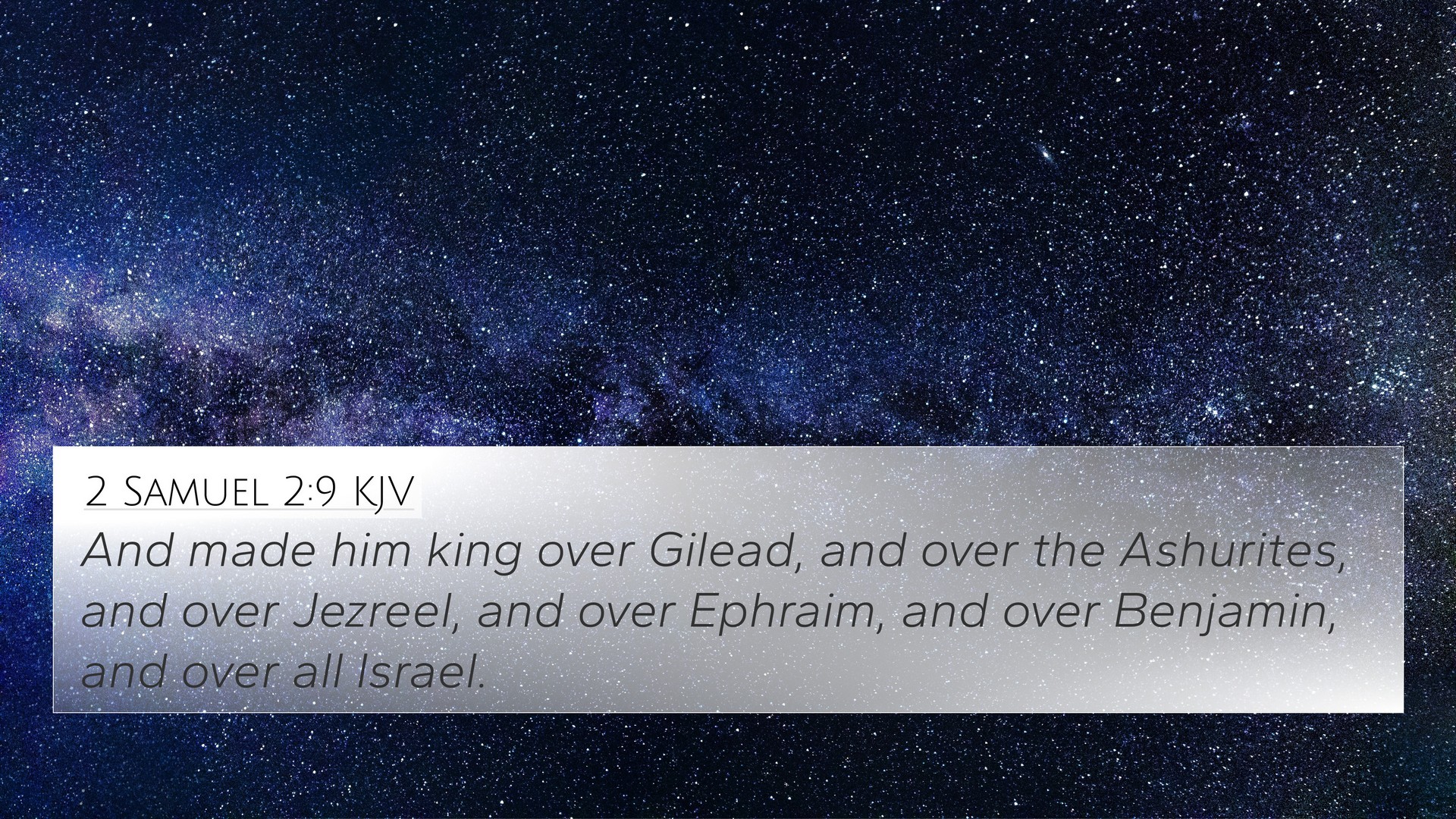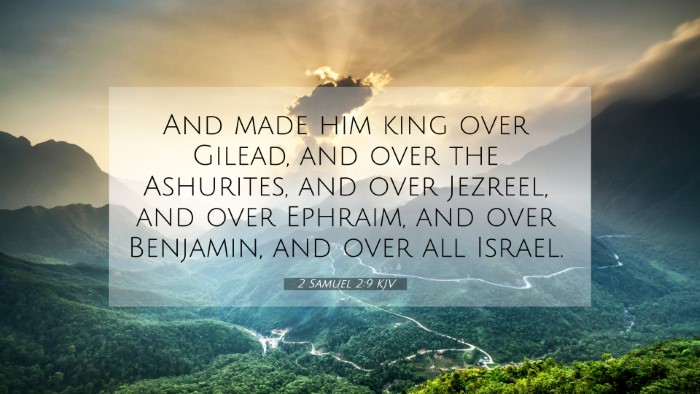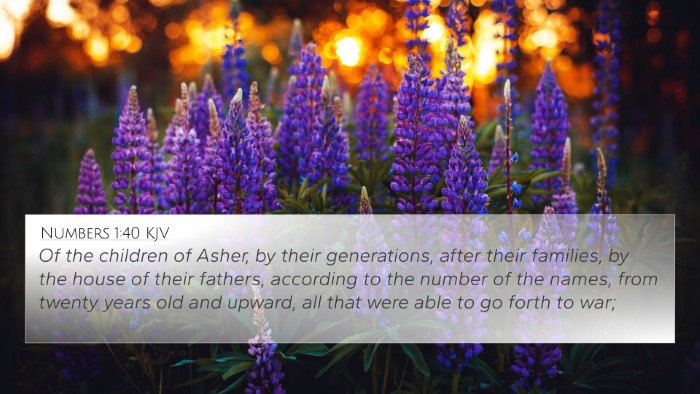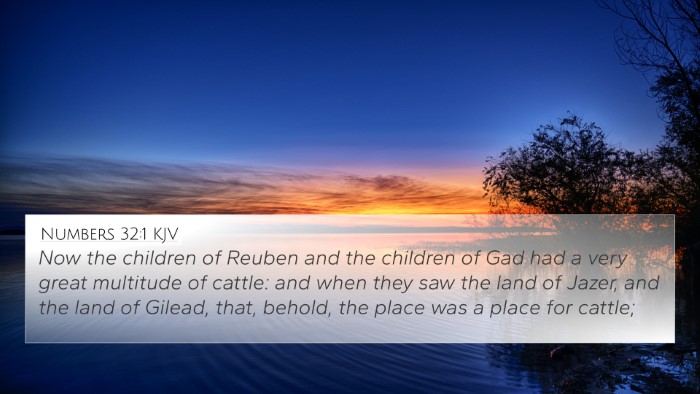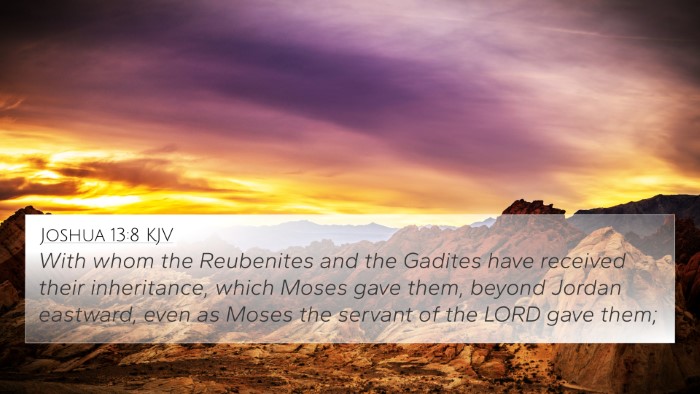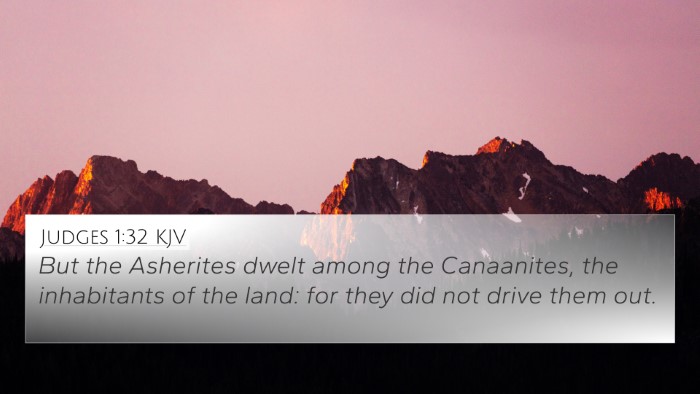Understanding 2 Samuel 2:9
Verse Reference: 2 Samuel 2:9, "And made him king over Gilead, and over the Ashurites, and over Jezreel, and over Ephraim, and over Benjamin, and over all Israel." This verse marks a significant moment in Israel's history as it reflects the political and social dynamics following King Saul's death.
Context and Background
This verse occurs in a pivotal chapter where David is establishing his rule after Saul's demise. David's ascension to kingship begins in Hebron, and this verse highlights the territories and people that recognize his sovereignty.
Commentary Insights
- Matthew Henry:
Henry emphasizes the importance of the tribes acknowledging David as their king and notes that this is a fulfillment of God's earlier promise to David. He illustrates how the divine choice of David was evident in the people's response.
- Albert Barnes:
Barnes draws attention to the geographical areas mentioned and their significance. Each tribe represents a different aspect of Israel's identity, showcasing the unity that David sought to bring forth. He discusses the establishment of David's rule and how it foreshadows the united monarchy.
- Adam Clarke:
Clarke provides historical insights into the culture of the time, explaining how regional leadership and tribal loyalty play vital roles in the acceptance of authority. He suggests that this moment signifies God's guidance in the turbulent transition of power.
Thematic Connections
This verse touches on various larger themes found throughout the Bible:
- God's Sovereignty:
The selection of David illustrates God's ultimate control over leadership and the destiny of nations.
- Leadership and Authority:
This moment epitomizes the trials of authority and the divine endorsement of leaders.
- Unity of Israel:
It serves as a turning point for Israel's tribes to come together under one king, promoting national unity.
Connection with Other Bible Verses
2 Samuel 2:9 can be cross-referenced with several other scripture passages that explore related themes:
- 1 Samuel 16:13 - The anointing of David by Samuel, establishing him as God's chosen leader.
- 2 Samuel 5:3 - David's formal anointing as king over all Israel, confirming his status.
- Psalm 78:70-72 - A reflection on God's choice of David, emphasizing his shepherd-like qualities.
- 1 Chronicles 11:1-3 - Reiterates the congregation of Israel and their recognition of David as king.
- Romans 13:1 - Discusses the divine ordinance of authority, paralleling the establishment of David's reign.
- Hebrews 7:14 - Points to the tribes of Judah and their significance in Jesus' ancestry, connecting the Old Covenant with the New.
- Acts 2:30 - References David's lineage, highlighting God's promise regarding his royal descendants.
Conclusion
2 Samuel 2:9 offers profound insights into the leadership dynamics in ancient Israel and God's hand in guiding the nation through transitions. Through the perspectives of Matthew Henry, Albert Barnes, and Adam Clarke, we glean an understanding of the multifaceted implications of David's kingship. This verse invites readers to explore the interconnectedness of the biblical narrative and encourages a deeper examination of God's sovereignty and the unfolding story of redemption throughout Scripture.
Exploring Cross-References Further
For those interested in deeper studies, tools for bible cross-referencing such as concordances, reference guides, and bible chain references can enhance understanding of how this verse relates to the broader biblical context.
Utilizing the skills to identify connections between Old and New Testament scriptures will enrich your study experience and enable better comprehension of biblical themes.
